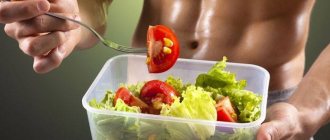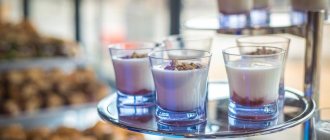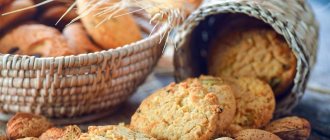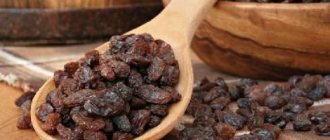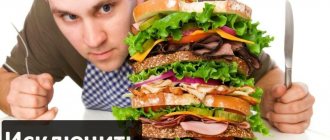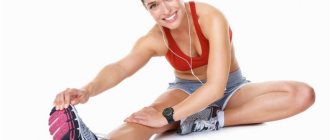There is a well-known saying: you are what you eat. In the running theme, you can say: you run the way you eat. What, how much and when you eat directly affects the effectiveness of your workouts. We asked professional running coaches what to eat before running. And, as always, everyone has their own opinion on this matter.
Complex carbohydrates 2-3 hours before training
Ilya Belousov, head coach of the Run Or Die running club:
Your pre-workout meal should consist of carbohydrates. Carbohydrates are the so-called “fuel” that supplies our body with energy during the training process. I recommend eating low fiber carbohydrates before running. For example, various cereals cooked in water, skim milk or yogurt, energy bars, breakfast cereals and fruits, pasta. Some people prefer to eat baked goods, but those who are watching their figure should avoid such foods.
The meal before running should not contain any fatty foods, since they are poorly absorbed by the body and take a long time to digest; running after such a meal becomes difficult and uncomfortable. Dietary fiber contained in legumes can cause cramps and flatulence, so it is better to avoid them too.
I don't recommend training on an empty stomach. Such training will not give the desired result; you may feel unwell, dizzy or lose consciousness. At the same time, you should not eat too heavily before training, as this can lead to heaviness in the stomach, pain in the side, nausea while running, as well as a decrease in the endurance and speed qualities of the athlete.
I recommend that my students eat a large meal (complex carbohydrates) 2-3 hours before training, or have a light snack (smoothie, fruit, dried fruit) 30 minutes - 1 hour before training. However, it is worth noting that the intensity of food digestion is different for everyone, so the optimal time to eat before training can be determined independently in practice.
As for fluids, I do not recommend using too much water before starting a workout. A large amount of drinking water results in a huge load on the vascular system, heart and kidneys. This is one of the reasons why a runner may feel a tingling sensation in their side while running a race. Half an hour before training, you can drink no more than 200 ml of water. Don’t forget to drink water in small sips during the training process.
How much water should runners drink?
Nutrition for different types of running
Middle distance running
During short and intense runs, all the body's resources are used at an increasing speed. Therefore, middle-distance races use more muscle glycogen than marathons. Your task is to provide yourself with a supply of carbohydrates.
Keep in mind that refueling with carbohydrates immediately before a workout will not make much sense - your run will end before the food has time to be processed and provide the necessary energy. The determining factor will be what you ate 12 hours before your run.
So, your pre-workout dinner might include the following complex carbohydrates:
- whole grain pasta and bread
- baked sweet potatoes (yams) or regular potatoes
- rice and other grains
- carrot
- legumes
“Extracting” glycogen from simple carbohydrates - confectionery, chocolate, ice cream, white bread and carbonated drinks - is unwise and harmful. The body will convert the resulting “fast” carbohydrates into fat reserves, which certainly will not increase your speed.
Avoid fatty foods - they make digestion difficult, as well as spices and salads (especially with cabbage) - “provocateurs” of indigestion.
Avoid salty foods so as not to cause your body to need additional fluid.
Don't forget to replenish your iron stores - this is especially important for middle-distance runners, since their oxygen consumption rate is much higher than that of marathon runners. Incorporate beef, liver, seafood and greens into your diet.
Depends on training time
Sergey Sorokin, co-founder and head coach of the Jaxtor marathon club:
It all depends on personal preference and the timing of the workout. If you workout in the morning, it is better to eat porridge or toast so that you do not feel discomfort from hunger. If you train in the evening, then 2-3 hours before you can eat slow carbohydrates (rice, buckwheat, pasta, porridge) with light meat such as fish, chicken or eggs. It is better not to eat red meat before training, because... This food takes a long time and is difficult to digest.
In general, everything is individual, so find your own way and use it. The main thing is not to eat fatty, salty, spicy foods before running, and then your body will thank you with good condition during training.
In the morning, I eat a little porridge (4-5 tablespoons) an hour before training, and pasta and 2 eggs 2-3 hours before my evening training.
Summarize
- Any endurance physical activity requires special attention to nutrition before and during training.
- Eat high-calorie, moderate-protein meals 3-4 hours before your workout or competition.
- Eat a light, high-carbohydrate snack 30-60 minutes before your run.
- During runs lasting more than 90 minutes, be sure to consume sports drinks or other snacks.
- Try not to eat foods high in fat or fiber before running so that the food you eat has time to be digested and absorbed.
- It's important to experiment with different foods and drinks during your workouts to see what works best for you.
The best breakfast is oatmeal with water
Maxim Denisov, founder and head coach of the Gepard school:
Firstly, it is necessary to eat before running. Nowadays there is a fashion, especially among girls, to run on an empty stomach: supposedly this burns more fat. But no, the workout will not be complete on an empty stomach.
If you train in the morning, the best breakfast is oatmeal with water. You can eat a banana or toast with cheese. This food is quickly digested, and you can start training in 30-40 minutes.
If you train in the evening, then watch what you eat for lunch. I do not recommend eating fried or meat. You can have soup, or something fish or chicken for main course. This lunch will be digested in 2-3 hours. But if you had a heavy lunch, the food will not be absorbed faster than four hours, and you may feel heaviness during training.
Menu examples
The main requirement for the set of foods that you eat before running is, of course, the predominance of carbohydrates and easy digestion.
For lovers of morning running, a classic snack (breakfast) is toast with a variety of toppings: nut butter, honey, etc. Before long workouts, oatmeal with raisins and other dried fruits is in demand.
For many athletes, chocolate, molasses-based baked goods, and yoghurts with various fillings and carbohydrate inclusions, such as rice balls, work ideally.
Some cyclic athletes eat an omelet before running, but during this period the body is not as demanding of proteins and fats as it is of carbohydrates. That's why an omelet is a great meal after a workout, not before.
The rest of the time, when running is in the afternoon or evening, the undoubted leader is pasta (pasta) made exclusively from durum wheat with an endless amount of sauces. Also, you can't forget about rice.
Slow carbohydrates
Denis Vasiliev, coach of the running club Runlab Running Laboratory, St. Petersburg:
You can eat anything before running. How the body will react to this or that food - that is the question. It is recommended to eat foods rich in slow carbohydrates: legumes, various cereals, whole grain products, vegetables and fruits. Then the body will be supplied with “fuel” for a long time, and your energy reserves should last for a long time. You should be careful with dairy products, some vegetables and fruits, and other foods rich in fiber. Excessive consumption can lead to gastrointestinal upset during training. Ideally, do not drink tea or coffee before training. They contain caffeine, which is a diuretic. And dehydration is a runner's enemy.
The optimal period of time between eating and running is individual for everyone. I know fast runners who can have a hearty breakfast, and an hour later they are already “rushing around” during training and feel quite comfortable. Choose the diet that is optimal for you, monitor your diet and then, undoubtedly, you will be in great shape both in everyday life and in training!
Morning jogging
Should I eat or not before running? Of course, it’s better to have something to eat if you have time for it. You can name at least two facts because of which you need to do this.
Advice
First, the body will be filled with the necessary energy reserves, which will definitely come in handy when running. Second, your body will wake up and invigorate faster, thanks to the nutrients that will fill the brain and other organs.
This is confirmed by the majority of scientific experts who claim that any physical activity should be preceded by food intake. Because athletes who had at least a small snack before exercise show much better results than those who trained hungry.
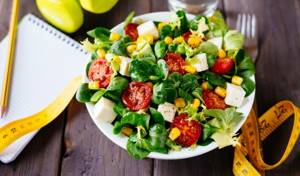
But is it possible for those who are used to sleeping longer and getting up only immediately before running to sit down to eat before running? In such a situation, it is better to refrain from eating, as you may feel nauseous or have a stomach ache . But if you consider yourself a morning person, waking up a few hours before going for a run, then feel free to eat, surf the Internet, take a bath and go for a run.
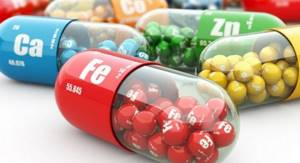
This is interesting
- [uaf_vkcount url='https://beginogi.ru/vitaminyi-dlya-myishts-sustavov-i-svyazok-i-kakie-vitaminyi-nuzhnyi-dlya-rosta-myishts/']
Vitamins for muscles, joints and ligaments and what vitamins are needed for muscle growth
- [uaf_vkcount url='https://beginogi.ru/mozhno-li-pit-kofe-pered-trenirovkoy-polezen-li-kofe-pered-begom/']
Is it possible to drink coffee before training? Is coffee good for you before running?
Simple carbohydrates and be sure to drink
Yana Khmelev, founder and head coach of the Bestia.club running school:
Before running, you can eat simple carbohydrates and be sure to drink. Especially if you train in the morning, because your blood thickens overnight. Simple carbohydrates are something sweet: a banana, water with honey, juice, bread with jam, or even candy. You need something that will immediately enter the bloodstream and be burned during training. It is better to eat about 100-200 kcal, make sure you burn more calories than you consume.
There is no need to eat fiber, because products containing it are difficult and take a long time to digest. Also, you should not eat anything fatty or protein - this also takes a long time to digest.
No fatty foods
Oleg Babchin, founder and senior coach of the Second Wind school:
Exercise requires energy: we get the best and most effective “fuel” from carbohydrates, both fast and slow. Your stomach should be empty at the start of your workout! Any food with a significant fat content will take a long time to digest, and there is a chance of starting a heavy workout, which will negatively affect breathing. It is better to refrain from any fatty foods before training, only the classics: salad, pasta, various cereals, soup. If time is really short and you want to eat, then there is a secret weapon - sweet tea with a cookie, bagel or dry bread.


